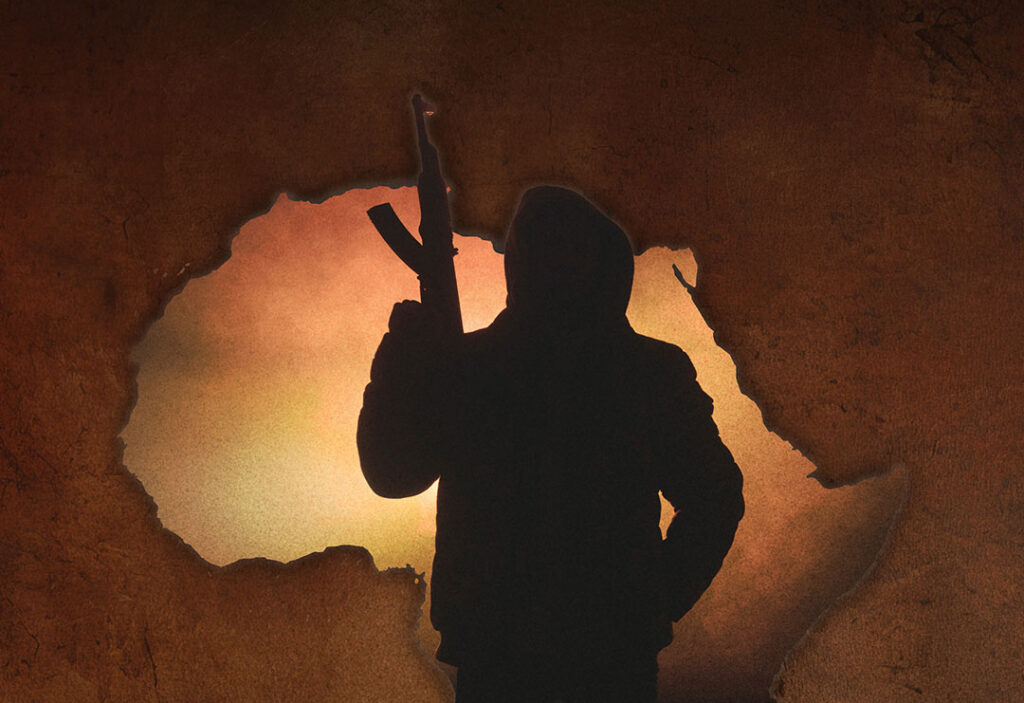As 2024 ended, Sahel security remained dire. Terror attacks led by an affiliate of the Islamic State (IS) group were a near daily occurrence, and the region accounted for nearly half of all global terrorism deaths. At least 2.8 million people were forced to flee their homes, including 2.1 million in Burkina Faso alone. Extremist groups expanded control of territory inside the military-led countries of Burkina Faso, Mali and Niger and were threatening coastal states.
West African leaders called for a shared response to the crisis.
“The magnitude and complexity of the problem are alarming and require concerted action,” Dr. Michael Imran Kanu, permanent representative of Sierra Leone to the United Nations, said during a Security Council briefing on the terrorism threat. “A coordinated approach to this transnational threat cannot be overemphasized.”
The challenges shared by West African countries highlight the need for regional strategies to address immediate security concerns and underlying socioeconomic issues. The overall increase in terrorism incidents has been dramatic, rising by more than 2,000% over the past 15 years. Food insecurity, poverty, ethnic tensions and weak governments are among the causes. Millions of young people face uncertain futures with few opportunities for jobs and other economic benefits. They have become vulnerable targets for terrorists’ recruiting.
Extremists seek to capitalize on ethnic tensions such as conflict over land between nomadic Fulani herders and sedentary farmers. By exacerbating these tensions and fanning the flames of anger among young people, terrorists grow their ranks.
“Terrorist groups are showing flexibility to adapt,” said Amar Bendjama, Algeria’s ambassador to the U.N. He added that extremist groups are determined to harness social, economic and political instability for their gain. “These phenomena create a fertile breeding ground to recruit new followers into their ranks.”
The rise of organizations such as Jama’at Nusrat al-Islam wal-Muslimin and splinter groups of IS has intensified violence across the region. These groups not only have targeted government forces but also civilians, leading to widespread humanitarian crises. Terror tactics include suicide bombings, abductions, torture, rape, forced marriages, recruitment of child combatants and attacks against government infrastructure, schools, traditional leaders and religious leaders.
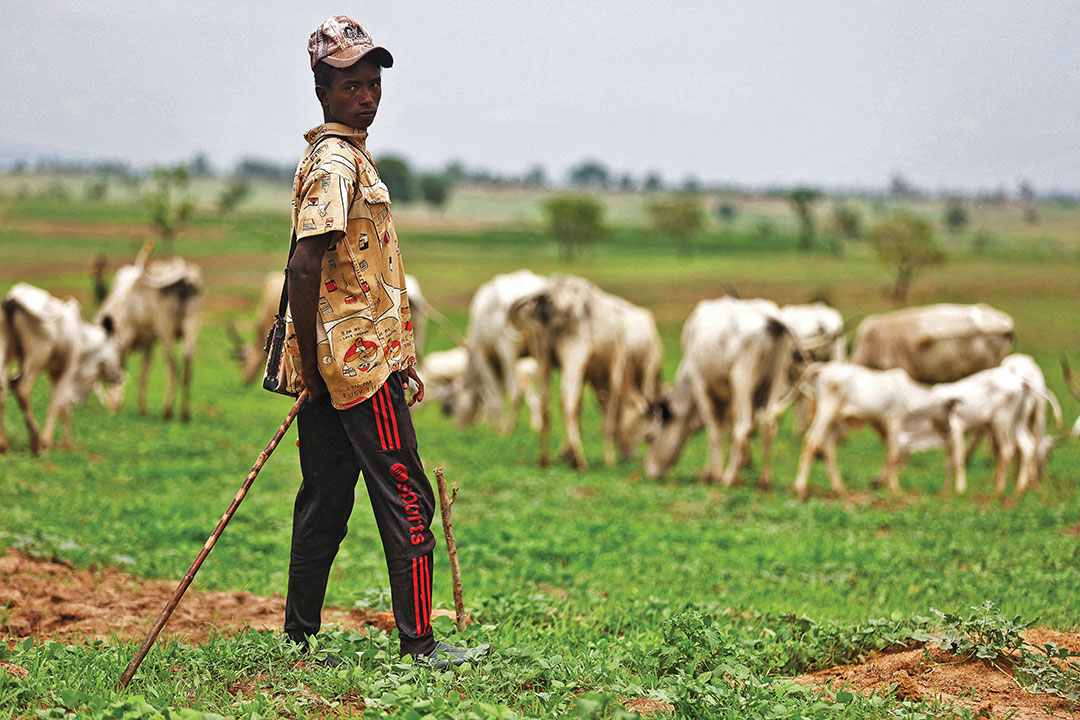
JUNTA ALLIANCE
The junta governments of Burkina Faso, Mali and Niger formed the Alliance of Sahel States in July 2024 to distance themselves from long-standing security partners. The alliance opted for cooperation with non-Western entities such as Russia’s mercenary Wagner Group for military support. The military governments of the alliance have failed to curb the terrorism threat. Critics say juntas generally do not prioritize stability or good governance. In each country, they say, the juntas are increasingly resorting to repression to hold on to power.
In late 2024, the three nations in the alliance withdrew from the Economic Community of West African States (ECOWAS), which offered six months of dialogue to change their minds. In the aftermath of the split, ECOWAS has been widely praised for trying to get the three countries to hold free elections and return to democracies.
The decision by Niger’s junta to suspend military cooperation with the U.S. is changing security dynamics throughout the region. Dimensions for Strategic Studies reports that the alliance countries have “procured large quantities of weapons from non-traditional sources — Russia, Turkey, Iran and China — in the name of ‘diversifying partnerships.’”
As terrorist groups expand, there is an increasing risk of violence spilling over into urban regions previously considered secure. The Liptako-Gourma area, a tri-border region between Burkina Faso, Mali and Niger, has become a hot spot for attacks that could easily spread into coastal territories.
Instability in the Sahel has not remained contained within its borders. It now directly threatens coastal West African nations, specifically Benin, Côte d’Ivoire, Ghana and Togo. Terrorists value the coastal countries for their ports, which provide access to moneymaking crimes such as weapons dealing, oil bunkering, piracy, and drug and human smuggling.
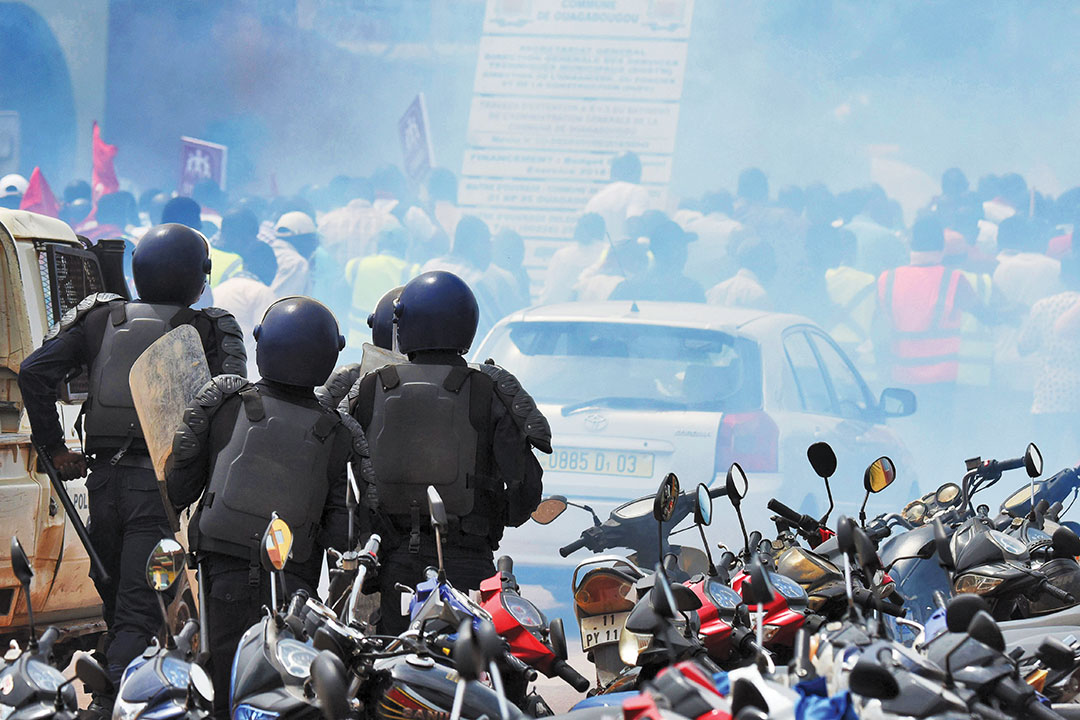
Coastal countries are working to strengthen their defenses against terrorist encroachment. Côte d’Ivoire, with one of West Africa’s most vibrant economies, has become a counterterrorism leader. It has established a national initiative to fight money laundering and terrorism financing. It has built army bases and developed counterterrorism units along its northern borders with Burkina Faso and Mali. In January 2022, then-Prime Minister Patrick Achi launched a program to keep terrorists from recruiting young people from border regions. By the end of that year, the program had worked with about 23,000 young people. The program develops apprenticeships and other employment opportunities.
Ghana also has worked to keep terrorists out by seeking more assistance from international partners, such as a $22 million support package from the European Union. Ghana has joined conflict prevention initiatives such as the U.S. Global Fragility Act, which establishes funding for anti-terrorism programs. Ghana has deployed more than 1,000 members of its elite special forces and hundreds of security officials to its northern border region while significantly restructuring the country’s security forces.
REGIONAL INITIATIVES
In an attempt to address the spread of terrorism, prevent terrorist attacks and clamp down on organized crime, Benin, Burkina Faso, Côte d’Ivoire, Ghana and Togo established the Accra Initiative in 2017. It is a collaborative security mechanism anchored on three pillars: information and intelligence sharing, training of security and intelligence personnel, and conducting joint cross-border military operations. The Institute for Security Studies says that initiative meetings are held at two levels — heads of security and intelligence services, and government ministers in charge of security.
“Given its membership, the Accra Initiative represents the most logical body to coordinate greater regional security cooperation in coastal West Africa,” the Africa Center for Strategic Studies (ACSS) notes. “The Accra Initiative’s context-specific design aims to foster greater coordination by bringing together a coalition of the willing as a form of cooperation broker. The initiative serves as an intermediary between a set of countries that are geographically close, share regional security objectives, and need to construct collective mobilization.”
Another regional anti-terrorism institution is the Multinational Joint Task Force (MNJTF), which consists mostly of military units from Benin, Cameroon, Chad, Niger and Nigeria. It is headquartered in N’Djamena, Chad, with a mandate to end the Boko Haram insurgency. As of 2024, it had 10,000 troops from its member countries. It is tasked with protecting civilians from violent attacks, establishing stabilization programs for Lake Chad Basin communities, and establishing humanitarian operations and assistance to affected areas.
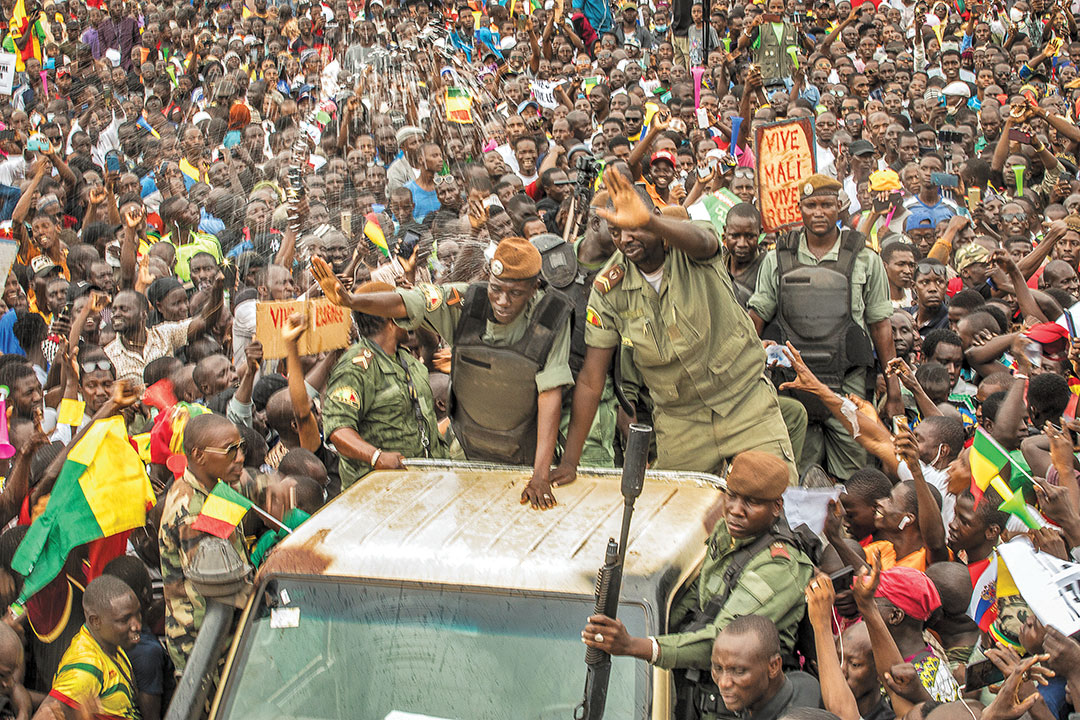
the associated press
The MNJTF’s mandate involves a two-phase process. “First, it conducts kinetic action against Boko Haram and its offshoots including counterterrorism operations, clearance campaigns, patrols, abductee search and rescue operations, and messaging campaigns to encourage defections,” according to an ACSS report. “Second, the MNJTF provides a coordination platform to address drivers of violent extremism in the region through its Regional Strategy for the Stabilization, Recovery and Resilience of the Lake Chad Region.”
ECOWAS came into existence 50 years ago as a regional political and economic union of the original 15 member countries. Its aim was to raise living standards and promote economic development throughout the region. Since then, it has evolved into what the ACSS describes as “the preeminent regional cooperation framework in West Africa due to the political will of its members, strong legal framework, and long-term experience in peace and security.” The Council on Foreign Relations describes it as “without question the most successful model of regional cooperation in Africa.”
ECOWAS’ historic 1976 protocol lets citizens move freely among member countries.
“The protocol on the free movement of persons, goods and services permits citizens the right of abode in any member state and has been an ECOWAS calling card over the years,” said Ambassador Abdel-Fatau Musah, ECOWAS commissioner for Political Affairs, Peace and Security. “It is a major achievement that people in West Africa do not have to think about a visa when they cross borders within the region.”
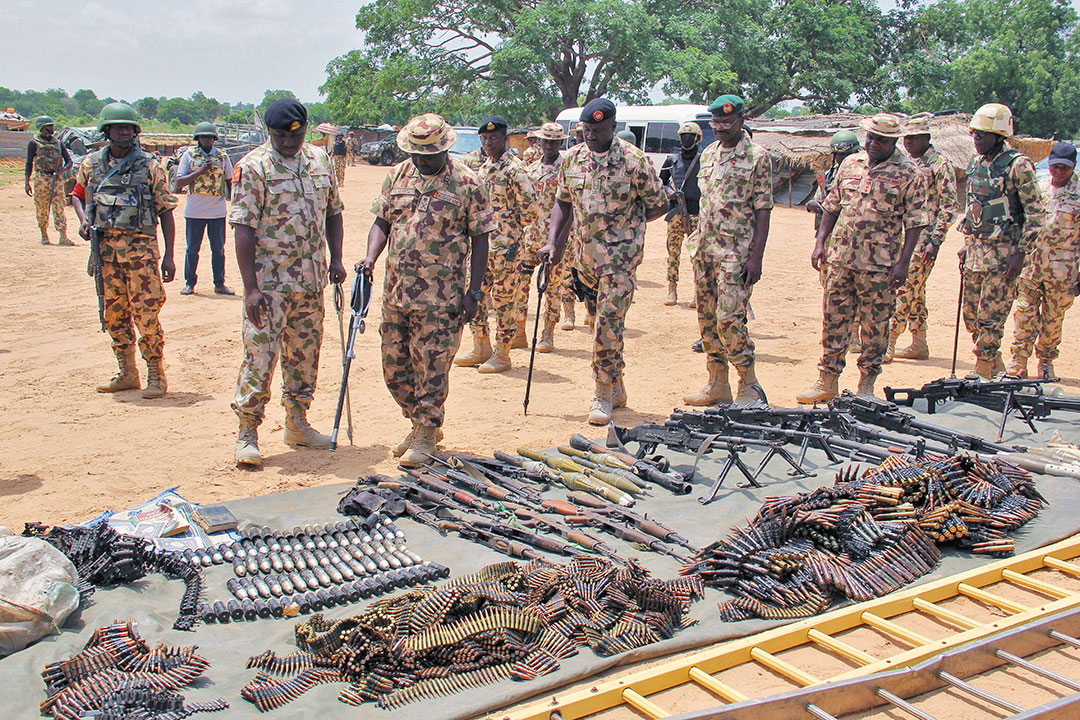
Although not technically an anti-terrorist organization, the Yaoundé Code of Conduct is a maritime security agreement signed in 2013 by 25 countries around the Gulf of Guinea to combat piracy, armed robbery against ships, and other maritime crimes in the West and Central African region. It created a zonal security architecture to respond collectively to maritime threats in the area stretching from Senegal to Angola. The Yaoundé Architecture coordinates and shares information among its participating countries.
The code has since encouraged member countries to make technological improvements in radar and surveillance capability to prevent terrorism, crime and piracy.
“Countries in the Gulf now have increased awareness of vessel activity in their waters and are able to make more informed responses in emergencies, like piracy or armed robbery and oil theft,” wrote maritime security expert Ifesinachi Okafor-Yarwood in an article for The Conversation. “Without the Yaoundé Code of Conduct and the new tech that it has introduced, the sharing of information, capture of evidence and cooperation between countries would not have been possible.”
A Holistic Response to Terrorism
The United Nations has established six key areas for regional cooperation in addressing Sahel-based terrorism:
- Strengthening bilateral and regional cooperation to maintain the region’s peace, security and socioeconomic development.
- Pursuing programs for sustainable development to improve people’s living conditions, and especially to ensure the social and economic integration of young people.
- Combating terrorism and crime by winning the support of local populations.
- Developing an integrated anti-terrorism approach by governments, regional organizations and the international community.
- Bolstering judicial cooperation and the monitoring of illicit financial flows.
- Improving coordination among the military high commands of Sahel countries.

